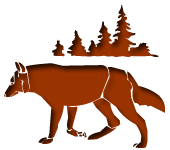 The April 2007
Campus 2020: Thinking Ahead report includes the following target: "By 2020, BC will ensure rates of Aboriginal post-secondary participation and attainment are equal
to the rates for the general population". The report further recognizes that this target is “ambitious,” given the demographic realities of Indigenous learners, and the
current trends that show only 4 out of 10 Indigenous people in British Columbia complete post-secondary education. One solution points to an increase in online course
delivery and connectivity across campuses and remote communities. Along with this transition is the need to prepare instructors to integrate elements and strategies that
embrace Indigenous values and ways of knowing. Our preliminary research shows that very few resources exist that will guide instructors in effectively implementing
learning opportunities for Indigenous learners.
The April 2007
Campus 2020: Thinking Ahead report includes the following target: "By 2020, BC will ensure rates of Aboriginal post-secondary participation and attainment are equal
to the rates for the general population". The report further recognizes that this target is “ambitious,” given the demographic realities of Indigenous learners, and the
current trends that show only 4 out of 10 Indigenous people in British Columbia complete post-secondary education. One solution points to an increase in online course
delivery and connectivity across campuses and remote communities. Along with this transition is the need to prepare instructors to integrate elements and strategies that
embrace Indigenous values and ways of knowing. Our preliminary research shows that very few resources exist that will guide instructors in effectively implementing
learning opportunities for Indigenous learners.
Traditional educational approaches are profoundly different from those of the mainstream educational system. Holistic (physical, mental, spiritual, emotional) growth and development of the person, experiential learning, oral tradition, and student-centeredness are key elements of the traditional approach. The pedagogical activities include teaching in a way that learning includes respective relations, building on experiential learning, listening well, allowing space, story-telling and story-making, supporting quaternity, dialogue, positionality, relevance, reciprocity, and reflectivity. Examples of ways to incorporate these elements include circle talks, story telling, and cyclically organized, repetitive, and centre-focused discursive patterns of writing.
Instructors will have access to professional development resources that will enhance their knowledge about First Nations pedagogy. Students will benefit from instructors who have an understanding of how to design curriculum that considers the needs of Indigenous learners.
The First Nations Pedagogy for Online Learning website contains visual and descriptive materials that can be used in several ways:
As such, they may be downloaded, copied, printed, and manipulated according to the context that they will be used. Any fully online activities, workshops, or learning resources that are intended for use and reuse in a learning management system or other platform will be listed in the Learning Community on this website.